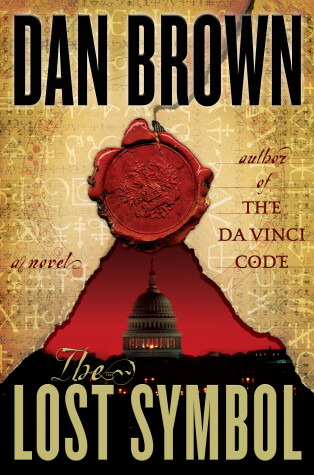Reviewed by empressbrooke on
But more importantly, the book. If I lived on a desert island and someone handed this to me and told me that it had single-handedly saved the publishing industry during this current economic downturn, would I have believed them? Probably not. It's like The DaVinci Code set in DC, and therein lies the problem. Brown is a bit like M. Night Shyamalan, where his popularity was established by That One Thing He Did Well, except until he seemingly felt obligated to repeat it several times even when, creatively speaking, he'd probably write something more interesting if he allowed himself to do something different.
Or, maybe he's more comparable to my beloved Preston/Child writing duo, who have locked themselves into only writing books about a fan-favorite character even though, again, some variety might rejuvenate them.
Angels & Demons, the first Robert Langdon book, remains the high point in the series. At that point in time, Brown understood pacing. He understood how to move the story forward with exciting action while at the same time educating us about everything he had found in his research. It felt like a story. The DaVinci code lost a little of that and became more about the research and information, which led to my puzzlement over it being turned into a movie before A&D. And now, The Lost Symbol has completed the journey to the "all information, no story" side of the spectrum. It took me a week out of the 2 weeks the library is permitting me to have this book to get more than 150 pages in. The whole time I was reading, I kept thinking one word: "INFODUMP."
It's like Brown felt a bit of pressure to make sure he told us as much information as he could vomit up. Sure, the Freemasons are a pretty good choice for a secret-filled topic, and the National Treasure movies certainly showed us that DC is full of the symbols that Brown and Langdon specialize in. But it's not balanced, and to back up this opinion, I present the fact that it takes nearly 150 pages to move the action forward from the initial, "Oh my god, there is a severed hand in the middle of the Capitol's rotunda." Trust me, if I found a severed hand, I would not be standing still for 150 pages.
It was still interesting and a little fun, and the latter half of the book went a lot faster than the first half, and even though the plot twist at the end was predictable, I give Brown props for finally having a villain who ISN'T the mentor/person of authority. I also liked the throwback to A&D's discussion about science vs. religion and how they're entwined rather than opposing schools of thought.
My advice to Brown now that he's done his duty and saved the publishing industry from the poorhouse - write something different. I know, your publisher would throw a total shitfit if you said you were retiring Mr. Langdon. You stopped being a person whose creativity is important back when The DaVinci Code hit the top of the best seller's list. You're a moneymaker, plain and simple, and they're gonna milk you until you're dry. I hope you get to write what you want next, and that it's not about symbols. It was fun learning about the NSA in Digital Fortress (you know, back before 9/11 and the Patriot Act made the agency a household name).
Reading updates
- Started reading
- 27 September, 2009: Finished reading
- 27 September, 2009: Reviewed
